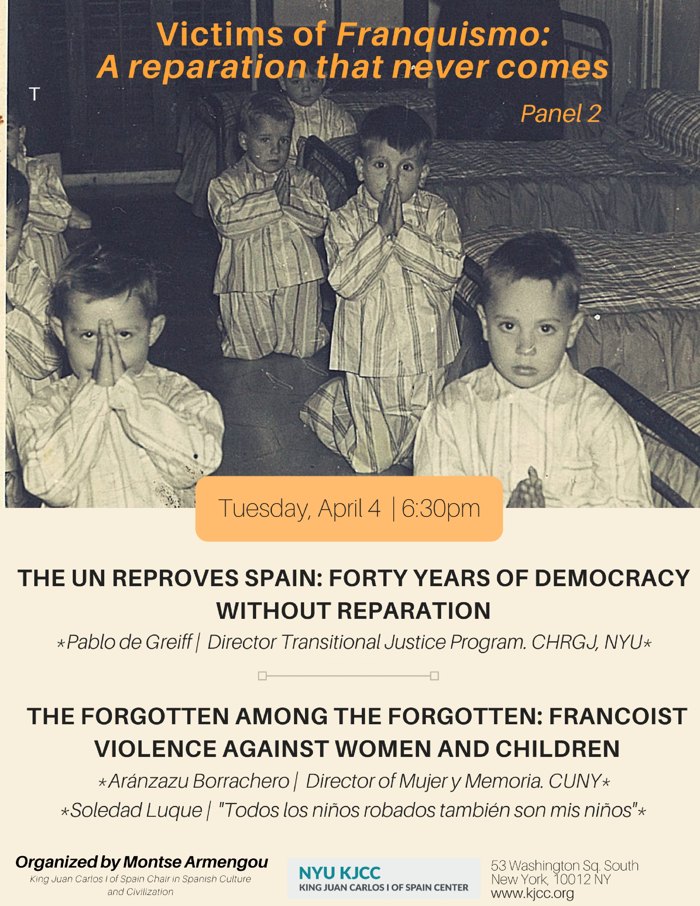In Spain the systematic violation of human rights during decades of the Franco Dictatorship remains an untreated social wound. Mass graves, assassinations, torture, kidnapping, child slavery, and state terror of those decades remain a difficult legacy for Spanish democracy and collective memory.
Though these violations have been recognized and denounced by international organizations such as the UN and Amnesty International, the state’s failure to create mechanisms for truth, reconciliation, or reparation, has forced extraordinary interventions by civil society. Journalists, civic organizations, voluntary associations, academic researchers, documentarians and filmmakers have helped to collect material evidence, historical records, personal testimonies that reveal the cost of this long period of dictatorship.
Conference
Tuesday March 7th 6:30pm
PANEL 1:
Sites of memory and voices of the past: why visit them, why listen to them.
*Jordi Guixé, Founder director of the European Observatory on Memories of the University of Barcelona. ~With the support of Ramon Llull Institut.~
*Luis Martín Cabrera, Director of the Spanish Civil War Memory Project. University of California, San Diego.
Tuesday April 4th 6:30pm
PANEL 2:
a) The UN reproves Spain: Unrepaired victims after forty years of democracy.
*Pablo de Greiff, United Nations Special Rapporteur on the Promotion of Truth, Justice, Reparation and Guarantees of non-recurrence. Senior Fellow Adjunct Professor of Law NYU.
b) Women among the forgotten: the Francoist violence against women and children.
*Aránzazu Borrachero, Director of Mujer y Memoria, CUNY
*Soledad Luque, President of “Todos los niños robados son también mis niños” and spokeswoman of the Coordinadora Estatal de apoyo a la Querella Argentina contra Crímenes del Franquismo.
Monday April 24th 6:30pm
PANEL 3:
Imperfect transition and challenge of the present. Victims of Francoism, Terrorism, and the State.
* Vicenç Navarro, Professor of Political and Social Sciences, University Pompeu Fabra (Barcelona, Spain) and professor of Public Politics in The Johns Hopkins University. Director of the Observatorio Social de España.
*Ludger Mees, Professor of Contemporary History, University of Basque Country (UPV/EHU)
Tuesday May 2nd 6:30pm
PANEL 4:
a) Amnesty International Spain: When crime is at home.
*Esteban Beltrán, President of Amnesty International Spain
*Jon Lee Anderson, Journalist, The New Yorker
*Miquel Ramos, Journalist, specialist in far right movements. Público, Diagonal (Spain)








